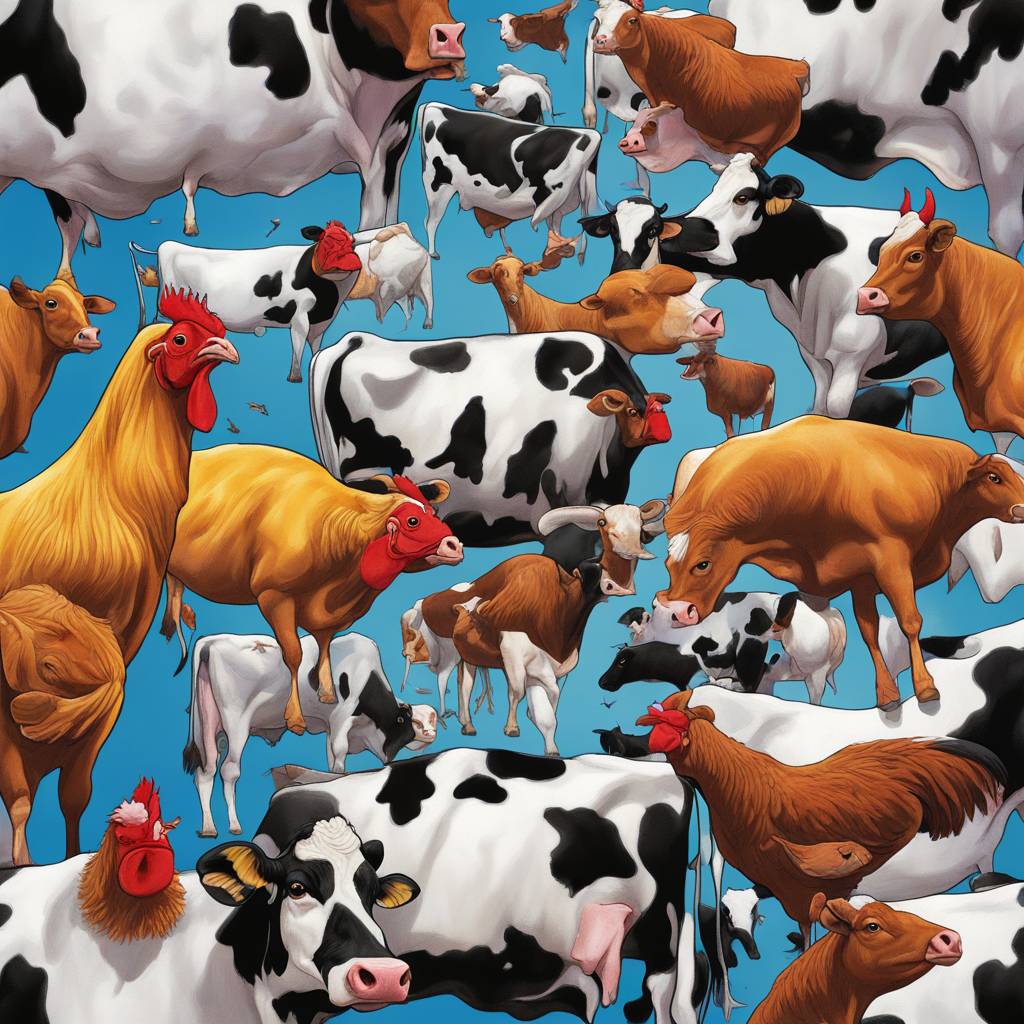Milk from dairy cows in Texas, Kansas, and New Mexico has tested positive for bird flu, specifically the Type A H5N1 strain, which can cause outbreaks in birds and occasionally infect people. This flu virus is primarily affecting older cows, leading to decreased lactation and appetite. However, officials have stated that there is no current concern over the safety of the commercial milk supply or any risk to consumer health. Measures are being taken to ensure that only milk from healthy animals enters the food supply, with milk from infected cows being diverted or destroyed.
In Minnesota, goats on a farm that had a previous outbreak of bird flu among poultry have also tested positive for the virus, marking the first known case of bird flu in U.S. livestock. The U.S. Department of Agriculture has confirmed that the commercial milk supply is safe, as pasteurization kills viruses and other bacteria, making the process mandatory for milk sold across state lines. The virus detected in the cattle has not shown any changes that would make it more easily spread to humans, according to federal testing.
Dairy farmers in Texas were first alerted to the issue three weeks ago when their cattle fell ill with symptoms of a mysterious dairy cow disease. The animals were lethargic, had decreased appetite, and milk production sharply declined. An investigation revealed that the cows likely contracted the virus from infected wild birds. While the infected cattle have shown signs of recovery within a week to 10 days, it is a different scenario than bird flu outbreaks in poultry, which often require culling of infected flocks.
Experts have estimated that around 10% of lactating dairy cows in affected herds are being infected by the bird flu virus. The Food and Drug Administration and the Centers for Disease Control and Prevention are working with state officials to monitor the situation, which is described as rapidly evolving. The dairy industry has increased biosecurity efforts on farms to limit traffic and restrict visitors to essential personnel.
The discovery of bird flu in dairy cows has raised concerns among experts, who note that the virus has been reported in various mammal species in the past. This event underscores the need for enhanced biosecurity measures on U.S. farms to prevent further spread of the virus. The USDA has emphasized that there is no immediate risk to consumers due to the virus being detected in milk samples and that pasteurization effectively eliminates any potential threats. The situation continues to be monitored closely by officials in affected states.


